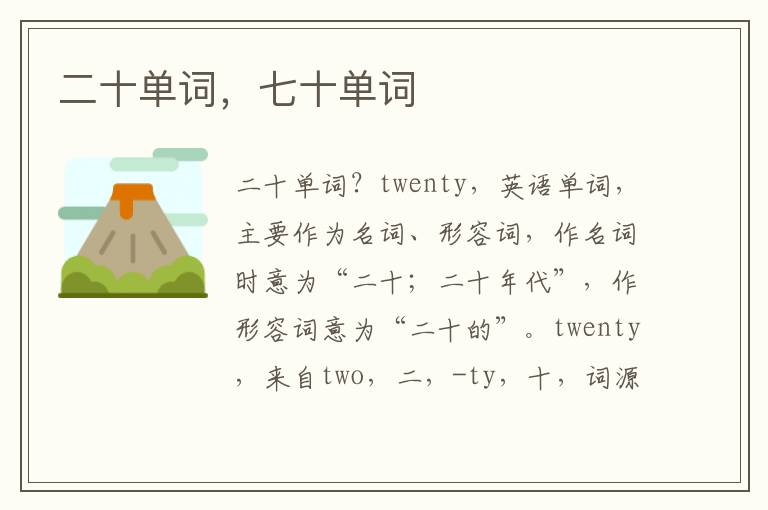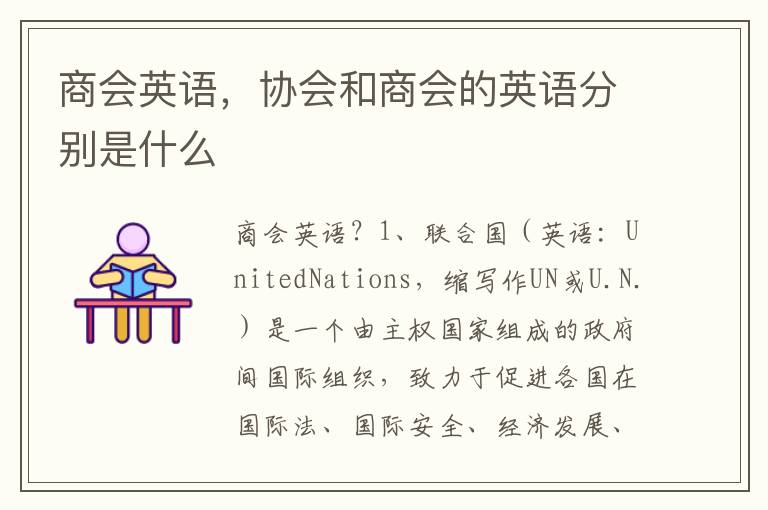【简介】感谢网友“雕龙文库”参与投稿,这里小编给大家分享一些,方便大家学习。
just
(1)用在祈使句句首,起强调作用,表示就,尽管好了
Just stay here and have a rest.
Just walk along the street.
(2)作副词,意为恰好,正好
He is just in the next room. 他正好在隔壁房间里.
(3)作副词,表示仅仅,只是
Im just a teacher. I cant help you.
Just _____ me if you have any difficulties.
straight
(1)作副词,意为笔直
Go straight along this street.沿着这条街一直向前走.
(2)作形容词,意为直的
The line is straight. 这条绳子很直.
Its a straight line. 这是条直线.
_______(笔直向前走)and turn left.
turn left
意为向左拐,相当于turn to the left. turn right是其反义词组.其中right和left是副词.turn中动词,意为翻转
Turn right and go along the street.
向右拐沿着这条街走.
right/left还可作名词,意为右边/左边.构成词组:
on the right/left 在右边/左边
on the right of 在的右边/左边
There is a zoo on the right of the library.
在图书馆的左边有一个动物园.
Go straight and turn ______. Youll see the school.
A to left B the left C for the left D left
down
(1)作介词,意为沿着,沿
Its down Bridge Street on the left.
沿着大桥街走,在左边.
(2)作副词,其反义词是up,表示方向.从城区往农村用down,从农村到城区用up,从市中心往城区用down,从城区往市中心用up.
Go up this road, and youll see the city.
沿着这条路走,你会看到那个城市.
Go ______ this village, and youll see the village.
A up B doen C in D for
Thank you very much 非常感谢.
意为非常感谢你.
表示感谢的用语有:
Thank you
Thank you very much
Thanks
Thanks a lot
Many thanks.
回答感谢的用语有:
Thats all right
Thats OK
Dont mention it
Not at all
You are welcome
-Thank you very much. -_________.
A Youre welcome B Welcome
C Its all right D Youre right
house/family/home
(1)hous意为房屋,住宅,指家人所居住的建筑.
(2)family意为家庭,家庭成员.与居住的房子没有关系.
(3)home意为家,指出生或居住的地方,可表示家乡,故乡.具有一定的感情色彩.
I want to have a big house. 我想拥有一套大房子.
Look! Jims family are watching TV.
看!吉姆一家人正在看电视.
Would you like to come to my home for supper?
你愿意来我家吃晚饭吗?
-How many people are there in your ______?
-Three, my parents and I.
A house B home C family D room
welcome
(1)作动词,意为欢迎.welcome to欢迎到某个地方来.
Welcome to our school.
(2)作形容词,意为受欢迎的
He is a welcome teacher. 他是一个受欢迎的老师.
(3)作名词,意为欢迎
give sb a warm welcome 热烈欢迎某人
-Thank you very much.-Youre ______.
enjoy
作动词,意为享受的乐趣,欣赏,喜欢.有以下词组
①enjoy oneself意为玩得高兴.
相当于have fun或have a good time.
She enjoyed herself in the park.
她在公园里玩得很高兴.
②enjoy sth意为喜欢某物.
My father enjoys his work.我父亲喜欢他的工作.
③enjoy doing sth意为喜欢做某事
I enjoy listening to music.我喜欢听音乐.
We all enjoy _______(sing) pop songs.
quiet
作形容词,意为宁静的,平静的
keep quiet 保持安静
a quiet street 宁静的街道
quietly是副词,意为安静地
He went out of the room quietly.
他静静地离开了房间.
I want to live a _____ life.
A quite B quiet C quietly D quitely
take a walk
动词词组,意为散步,步行,相当于have a walk/go for a walk.
Lets take a walk in the park. 让我们一起在公园里散步.
与take有关的词组:
take a look 看一看 take photos 照相
take a rest 休息 take off 脱下
take a taxi 乘出租车 take part in 参加
T______ a walk after supper.
through
介词,意为穿过,经过,表示从中间通过,穿过,强调动作是从里面进行的.常与pass,walk,go等动词连用.
He often walks through the forest. 他经常穿越森林.
across表示从一定范围的一边到另一边.表示动作是从物体表面进行的.
The dog walked across the bridge.那条狗走过了那座桥.
over多指在空间范围上通过,越过或垂直上方,不接触表面.
The plane is flying over the village.
飞机飞过那个村庄.
I like walking _____ the forest.
A across B over C on D through
beginning
名词,意为起初,开始,开端.可构成词组
at the beginning 起初
at the beginning of 在开始时
fron the beginning 从一开始
from beginning to end 从头到尾
begin是其动词形式,意为开始,同义词为start.
begin doing/to do sth 意为开始做某事.
My father began to work two years ago.
我父亲两年之前开始工作的.
He saw the film from _____ to ______ end.
A a, a B the, a C /, / D the, the
have fun
(1)动词词组,意为玩得开心,过的愉快.相当于have a good time, enjoy oneself.
We had fun in the park last week.
上周我们在公园里玩得很高兴
= We enjoyed ourselves in the park last week.
= We had a good time in the park last week.
(2)have fun
have a good time (in) doing sth 做某事很开心.
enjoy oneself
He had fun (in) playing footall. 他踢足球踢是很开心.
(3)have fun with意为在中获得乐趣.
We have fun with English. 我们在英语中获得乐趣.
More and more people will have fun _____ English.
A learn B learns C to learn D learning
visit
(1)作及物动词,意为访问,拜访,探望.后接表示人的名词或代词.
I want to visit my friend, Tom. 我想去看我的朋友汤姆.
He visited his grandparents yesterday.
他昨天看望了他的爷爷.
(2)还可表示游览,参观,后接表示地点的名词.
I visit the Great Wall every year.
我每年者都去游览长城.
They are visiting Beijing. 他们正在参观北京.
(3)作名词,意为访问,探望,参观.
This is my first visit to China. 这是我第一次来中国旅游.
We are on a visit to Beijing. 我们正在参观北京.
(4)visitor意为参观者,旅游者,游客.
There are many visitors in this city.
在这个城市有很多游客.
This is my second visit ____ Guilin.
A in B to C of D for
busy
作形容词,意为忙的,繁忙的.其反义词为free(自由的,有空的).可构成词组
be busy with sth = be busy (in) doing sth 忙于做某事.
Im busy with my homework.我忙于做家庭作业.
= Im busy in doing my homework.
All the people are busy _____ their work.
A on B do C with D does
just
(1)用在祈使句句首,起强调作用,表示就,尽管好了
Just stay here and have a rest.
Just walk along the street.
(2)作副词,意为恰好,正好
He is just in the next room. 他正好在隔壁房间里.
(3)作副词,表示仅仅,只是
Im just a teacher. I cant help you.
Just _____ me if you have any difficulties.
straight
(1)作副词,意为笔直
Go straight along this street.沿着这条街一直向前走.
(2)作形容词,意为直的
The line is straight. 这条绳子很直.
Its a straight line. 这是条直线.
_______(笔直向前走)and turn left.
turn left
意为向左拐,相当于turn to the left. turn right是其反义词组.其中right和left是副词.turn中动词,意为翻转
Turn right and go along the street.
向右拐沿着这条街走.
right/left还可作名词,意为右边/左边.构成词组:
on the right/left 在右边/左边
on the right of 在的右边/左边
There is a zoo on the right of the library.
在图书馆的左边有一个动物园.
Go straight and turn ______. Youll see the school.
A to left B the left C for the left D left
down
(1)作介词,意为沿着,沿
Its down Bridge Street on the left.
沿着大桥街走,在左边.
(2)作副词,其反义词是up,表示方向.从城区往农村用down,从农村到城区用up,从市中心往城区用down,从城区往市中心用up.
Go up this road, and youll see the city.
沿着这条路走,你会看到那个城市.
Go ______ this village, and youll see the village.
A up B doen C in D for
Thank you very much 非常感谢.
意为非常感谢你.
表示感谢的用语有:
Thank you
Thank you very much
Thanks
Thanks a lot
Many thanks.
回答感谢的用语有:
Thats all right
Thats OK
Dont mention it
Not at all
You are welcome
-Thank you very much. -_________.
A Youre welcome B Welcome
C Its all right D Youre right
house/family/home
(1)hous意为房屋,住宅,指家人所居住的建筑.
(2)family意为家庭,家庭成员.与居住的房子没有关系.
(3)home意为家,指出生或居住的地方,可表示家乡,故乡.具有一定的感情色彩.
I want to have a big house. 我想拥有一套大房子.
Look! Jims family are watching TV.
看!吉姆一家人正在看电视.
Would you like to come to my home for supper?
你愿意来我家吃晚饭吗?
-How many people are there in your ______?
-Three, my parents and I.
A house B home C family D room
welcome
(1)作动词,意为欢迎.welcome to欢迎到某个地方来.
Welcome to our school.
(2)作形容词,意为受欢迎的
He is a welcome teacher. 他是一个受欢迎的老师.
(3)作名词,意为欢迎
give sb a warm welcome 热烈欢迎某人
-Thank you very much.-Youre ______.
enjoy
作动词,意为享受的乐趣,欣赏,喜欢.有以下词组
①enjoy oneself意为玩得高兴.
相当于have fun或have a good time.
She enjoyed herself in the park.
她在公园里玩得很高兴.
②enjoy sth意为喜欢某物.
My father enjoys his work.我父亲喜欢他的工作.
③enjoy doing sth意为喜欢做某事
I enjoy listening to music.我喜欢听音乐.
We all enjoy _______(sing) pop songs.
quiet
作形容词,意为宁静的,平静的
keep quiet 保持安静
a quiet street 宁静的街道
quietly是副词,意为安静地
He went out of the room quietly.
他静静地离开了房间.
I want to live a _____ life.
A quite B quiet C quietly D quitely
take a walk
动词词组,意为散步,步行,相当于have a walk/go for a walk.
Lets take a walk in the park. 让我们一起在公园里散步.
与take有关的词组:
take a look 看一看 take photos 照相
take a rest 休息 take off 脱下
take a taxi 乘出租车 take part in 参加
T______ a walk after supper.
through
介词,意为穿过,经过,表示从中间通过,穿过,强调动作是从里面进行的.常与pass,walk,go等动词连用.
He often walks through the forest. 他经常穿越森林.
across表示从一定范围的一边到另一边.表示动作是从物体表面进行的.
The dog walked across the bridge.那条狗走过了那座桥.
over多指在空间范围上通过,越过或垂直上方,不接触表面.
The plane is flying over the village.
飞机飞过那个村庄.
I like walking _____ the forest.
A across B over C on D through
beginning
名词,意为起初,开始,开端.可构成词组
at the beginning 起初
at the beginning of 在开始时
fron the beginning 从一开始
from beginning to end 从头到尾
begin是其动词形式,意为开始,同义词为start.
begin doing/to do sth 意为开始做某事.
My father began to work two years ago.
我父亲两年之前开始工作的.
He saw the film from _____ to ______ end.
A a, a B the, a C /, / D the, the
have fun
(1)动词词组,意为玩得开心,过的愉快.相当于have a good time, enjoy oneself.
We had fun in the park last week.
上周我们在公园里玩得很高兴
= We enjoyed ourselves in the park last week.
= We had a good time in the park last week.
(2)have fun
have a good time (in) doing sth 做某事很开心.
enjoy oneself
He had fun (in) playing footall. 他踢足球踢是很开心.
(3)have fun with意为在中获得乐趣.
We have fun with English. 我们在英语中获得乐趣.
More and more people will have fun _____ English.
A learn B learns C to learn D learning
visit
(1)作及物动词,意为访问,拜访,探望.后接表示人的名词或代词.
I want to visit my friend, Tom. 我想去看我的朋友汤姆.
He visited his grandparents yesterday.
他昨天看望了他的爷爷.
(2)还可表示游览,参观,后接表示地点的名词.
I visit the Great Wall every year.
我每年者都去游览长城.
They are visiting Beijing. 他们正在参观北京.
(3)作名词,意为访问,探望,参观.
This is my first visit to China. 这是我第一次来中国旅游.
We are on a visit to Beijing. 我们正在参观北京.
(4)visitor意为参观者,旅游者,游客.
There are many visitors in this city.
在这个城市有很多游客.
This is my second visit ____ Guilin.
A in B to C of D for
busy
作形容词,意为忙的,繁忙的.其反义词为free(自由的,有空的).可构成词组
be busy with sth = be busy (in) doing sth 忙于做某事.
Im busy with my homework.我忙于做家庭作业.
= Im busy in doing my homework.
All the people are busy _____ their work.
A on B do C with D does









